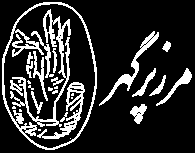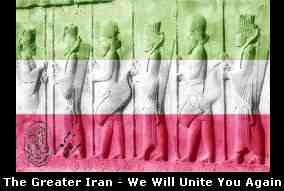'Forestall Iran Confrontation by Negotiation' - Ohmy News

Interview with Dr. Judith Yaphe, researcher with the Institute for National Strategic Studies
Some weeks ago, when a study was published by Judith Yaphe and Colonel Charles D. Lutes from the Institute for National Strategic Studies at the National Defense University in Washington, I asked Yaphe, a former CIA analyst and distinguished research professor, for an interview. She agreed. We conducted the interview via email.
This study (PDF) is important as it recommends the United States not stop Iran from pursuing it's nuclear ambitions with military force.
In your recent analysis, published by the Institute for National Strategic Studies, you have emphasized that compromising with a nuclear Iran government is a better choice for the United States than a military strike or a regime change policy. What are the factors ascertaining U.S. policy in this field?
The views expressed in the book just published are mine and my co-authors, and do not represent the policy of the United States government. In our opinion, the best and most effective options for the U.S. in dealing with a nuclear-armed Iran would be to try to forestall a confrontation by negotiation. We believe that a pre-emptive military strike would delay Iran's acquisition of nuclear weapons technology but not convince it to end fuel enrichment. A military strike on a nuclear-ready facility would be dangerous for Iran, the region, and the U.S. regime change is best left to the Iranians.
Now, you tell me two things: Why do you neglect to note that our study focuses on nuclear weapons concerns and not on nuclear energy? And, how do the Iranian people perceive their new president's position on nuclear weapons development? U.S. policy focuses on stopping the spread of nuclear weapons--the European Union has the same concern.
I focused on exactly what the study was about. In response to your other question, most Iranians are against nuclear weapons development. However, I believe that utilizing nuclear energy will be necessary for my country in the next few decades. What is the role of internal factors pushing U.S. policy toward Iran?
If you mean domestic American politics, then I would say most Americans are against the spread of nuclear weapons and see no reason why Iran must have them. Americans remember when Iran supported terrorism against U.S. nationals and interests -- including hostages taken in Tehran and Beirut, hijackings, etc. Americans do not understand Iranian reasoning that it is Iran's right to possess these kinds of weapons of mass destruction. And they are uncertain the Iranian leaders understand a deterrence strategy, if that is why they want them. It appears to Americans and to Iran's neighbors that Iran wants to gain respect and attention and legitimacy by being the pre-eminent regional power and that nuclear weapons are necessary to "prove" Iranian leadership. Is that true? If sudden change should occur in Iran, it is up to Iranians to decide what to do.
What is the United States' position on two splinter groups in Iran known as Mojahedin-e-khalgh (MEK) and Monarchists.
The MEK is a terrorist group that sold out to Saddam Hussein and killed Americans, Iraqis, and Iranians; the monarchists are as unpopular in Iran as the Hashimite monarchy is in Iraq. To my knowledge, the U.S. officially recognizes the MEK as a terrorist group.
The U.S. cannot attack Iran without domestic supporting groups. In Iraq and Afghanistan, the U.S. counted on domestic forces to change the regimes. Now, the American neo-conservatives believe in supporting the aligned forces. What similarities and differences do you see between these forces used in Iraq; Afghanistan and Iran?
The U.S. long assumed that Iraqis would overthrow the regime of Saddam Hussein; they could not and did not. After the attacks of 9/11, the U.S. was determined to strike where Al Qaeda lived. There was no legitimate government for Afghanistan under the Taliban. You must know how the Taliban government attacked Iranian diplomats and Afghan Shia tribes. Did Iran hope for less than the U.S. in Afghanistan? The U.S. clearly supported elements opposed to the Taliban and Saddam Hussein -- so too did Iran. The Bush administration may not like the government in Iran, but recent comments by Secretary of State Condeleezza Rice and our Ambassador in Baghdad suggest they are looking to talk in Iraq on issues of mutual concern and not to be confrontational. The real issue here is what is in our mutual interest.
How serious is the idea of the United States changing the regime in Iran or performing a military strike and occupying it? Do U.S. lawmakers and statesmen support this idea?
The idea of the U.S. trying to do regime change in Iran by military strike and occupation is absurd. Americans tend think in straight lines, they will give you an honest answer; they are not accustomed to the kind of calculated ambiguity that seems to mark Iranian policy formation.
Some believe Iran has a plan to misdirect outside agencies while secretly trying to build a nuclear weapon by 2007. Is diplomacy failing?
Do you think Iran is stalling the EU and IAEA in order to complete its construction of fuel enrichment facilities? Shocking!
In fact, in these recent weeks many experts and analysts have repeated such worries about the Islamic Republic's nuclear policy. Some of them mentioned a possible limited air attack on Iran, but military targets are scattered and hidden throughout Iran. How serious do think Israel is about intervening with its military?
Israel is certainly worried by President Ahmadinejad's call for its destruction and fears that a nuclear-armed Iran would act without restraints and attack it with a nuclear weapon. Contrary to popular opinion, there is little anyone can do to sway Israel should it decide on a course of action. The U.S. is not able to dictate to Israel what it should do and not do, but I doubt you will believe this.
Of course, I believe it, but even Israeli journalists talking about a U.S. green light to attack Iran. The Israel news agency mentioned it.It seems U.S. politicians are not in agreement on Iran and have expressed different ideas since Ahmadinejad became president. The idea of regime change or reform has actually failed. As a security analyst, what do you think about the United States' knowledge of Iran, its internal mechanism and the possibility of a domestic revolution?
There is no single point of view regarding Iran. Some favor talking to Iran and others oppose negotiating with Tehran under its current government; Americans do not have unelected leaders like the Ayatollah Khamenei in charge of official decision making and we do not vet political candidates on their religious loyalties. You should examine the reaction to President Bush's efforts to appoint a Christian fundamentalist to the Supreme Court; many Americans viewed this as an inappropriate qualification for someone to sit on the highest court in the country. The key point is this: Iran and the U.S. and Iran and Israel have no communications or direct contacts; unless you talk to the other, you cannot know what they think, if they understand you, or if they know what your "red lines" are. A red line is a point on which there can be no negotiations or when crossed will create confrontation. If Iran and Israel, if Iran and the U.S. do not talk, then the risk of a deadly mistake arises.
It seems that a military strike on Iran is not that easy as the ones in Iraq and Afghanistan and even puts the U.S. in a risky situation. Do you think Iran's regime knows this and will try to take advantage of the United States' vulnerability and construct a nuclear bomb?
If you are asking will Iran construct a nuclear weapon because it believes the U.S. intends a military strike, then I think that is dangerous thinking and proves my earlier point about non-communication. Iran does not understand the U.S. and the U.S. does not know Iran.
My next question was on prohibition by the U.N. Security Council and how effective would sanctions be to prevent Iran from achieving its nuclear goals, regarding the present supporters of Iran such as China and Russia. So far, unilateral U.S. sanctions and efforts to stop suppliers from providing Iran with nuclear weapons training and components has not prevented Iran from acquiring what it wants.
As with Iraq under sanctions, however, sanctions voted by the UN Security Council would have a deeper impact on Iran, increase its isolation, and cost it international support and sympathy.
What are the most important weak points of the United States confronting Iran?
In U.S. approaches towards Iran, it is the lack of communications, refusal to acknowledge the mutual interests in regional security, and refusal to deal with the government of Iran.
If you are looking for Iran's weak points, they are:
- Refusing to admit to the real intent behind fuel enrichment (nuclear weapons the only result);
- Continuing to support Hezbollah, Hamas, and other extremists in anti-Israeli attacks, which only inflame the situation and ignore the welfare of the Palestinian people;
- Meddling in Iraq as a way to annoy the U.S. and keep Iraq weak.
.42.jpg)


0 Comments:
Post a Comment
<< Home